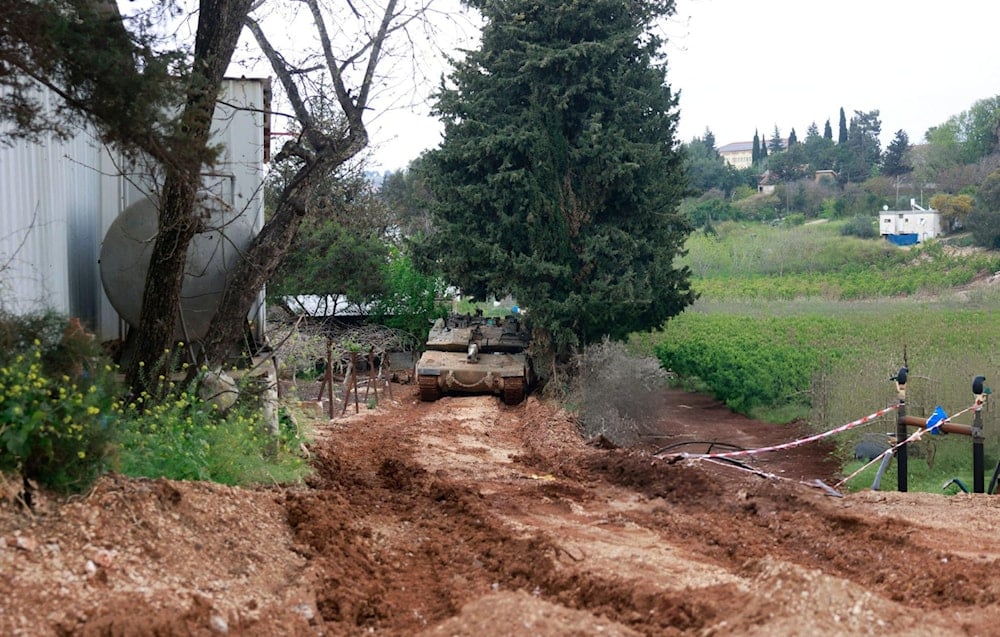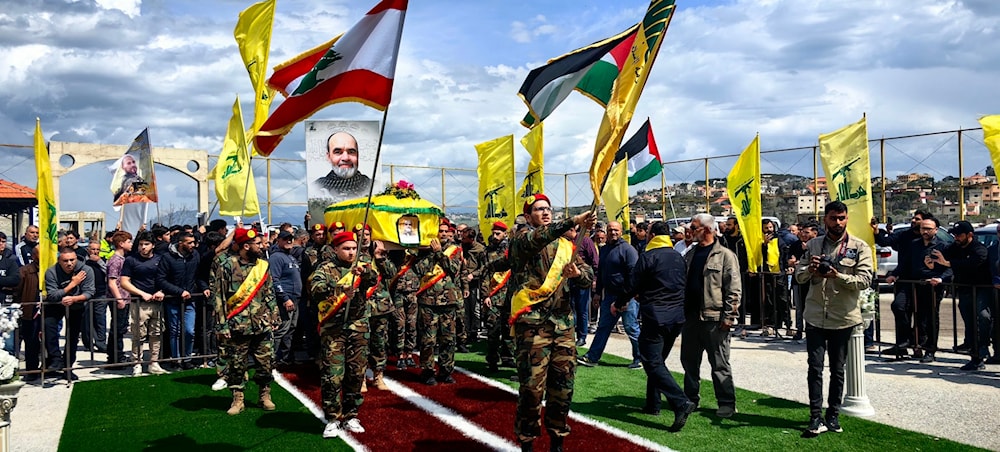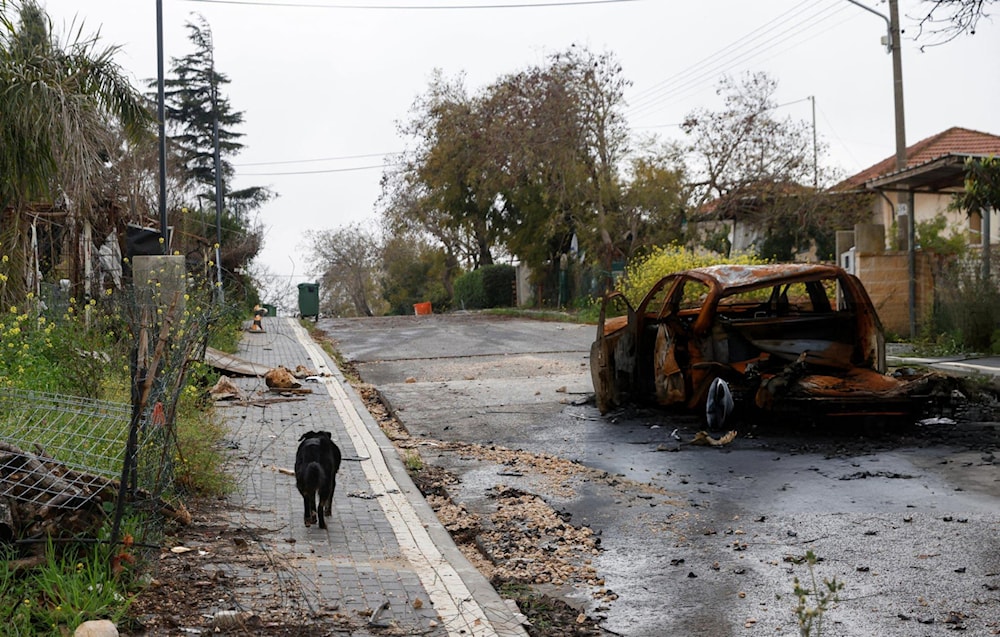'Israel's' famed 'Metula' settlement is now a ghost town: Official
The head of the settlement's council delves into the mounting crises faced by settlers in the north and the contrasting picture drawn by Lebanese residents on the other side.
-

An Israeli tank unit is seen in the northern Israeli settlement of Metula near the blue line between occupied Palestine and Lebanon on April 9, 2024 (AFP)
The Israeli "Metula" settlement has been abandoned for nearly half a year following the outbreak of Hezbollah's operations in support of the Palestinian people on October 8, 2023.
A report published by Israeli broadcaster Kan, delved into the daily lives of Israeli settlers in the colonial outpost, located on the tip of the al-Jalil Panhandle, directly at the Lebanese-Palestinian border. Once a landmark for the Israeli colonial project in northern occupied territories, "Metula" is now a ghost town, as most of its settlers and businesses have abandoned it, leaving behind acres of agricultural land and multiple factories.
The head of the "Metula" Council, David Azoulay, said that settlers are burying their dead under the veil of the night, fearing direct fire from Lebanon.
"They have become like thieves in the night, burying their dead fearing being monitored and targeted," Azoulay said.
On his part, Kan's correspondent from the north, Rubi Hammerschlag, said that, in light of ongoing confrontation in the area, he fears approaching the road nearest to the border.
Hammerschlag is afraid of being "monitored from the (Lebanese) Kfar Kila village or al-Khiyam, which are only a few hundred meters away from us.
"[We fear] that precise missile be launched at us," Kan's correspondent from the north emphasized.
The situation in the northernmost settlement is as follows, according to Hammerschlag: Warning sirens going off, a rocket artillery or a missile coming from Lebanon.
Read more: 'Metula' mayor: 80K settlers are displaced, no prospect of return
Southerners paint a stark picture of resilience
As for the head of the settlement's council, Azoulay said that the authorities are restricting the number of mourners that can participate in funeral processions in the settlement, while dozens of southerners in Lebanese border towns, waiving Hezbollah flags, participate in their own processions on the other side of the border.
-

Residents of the Lebanese border town, Kfar Kila, as well as relatives and Hezbollah members, participate in the funeral procession of martyr, Abed al-Amir Hassan Halawi, "Ali al-Rida", on April 9, 2024. The martyr on the path to al-Quds, was named after one of the town's first martyrs in confrontation with the Israeli occupation, martyr Abed al-Amir Halawi, who was killed in an Israeli raid on his home after hours-long confrontations on November 27, 1975. (@alishoeib1970/X)
"The second side has not really gone away and is not deterred, but we are deterred, as we [carry out our funeral processions] like thieves in the night and they do it freely," Azoulay said, painting a stark picture of Lebanese border town citizens' resilience in the face of Israeli aggression.
Cross-border confrontations severely damage "Metula"
In confrontations nearly 140 settling units were damaged in "Metulla" and 15 to 20 others were completely destroyed. Essential infrastructure was also severely damaged in the settlement. In detail, sidewalks were destroyed and light posts have been turned into scrap metal, due to the operations of the Israeli occupation forces' armory, which has to work on destroying key streets to block the path to possible ground attacks from Lebanon.
-

A dog walks past a destroyed car in the deserted northern Israeli settlement of "Metula", occupied Palestine, on March 19, 2024 (AFP)
When delving into such details, Israeli officials and settlers have always made sure to make mention of Hezbollah's elite Radwan force, named after leader and commander martyr Imad Mughniyeh. As such in his remarks to Kan, Azoulay did mention the possibility of an attack by the Radwan Force, as a driver behind the Israeli military's barricading activities.
He also mentioned that at least 25% of the colonial outpost's community will not return to it, pointing to the state of neglect that has taken hold of the town, which was a renowned summer resort to Israelis.
Read more: Hezbollah targets crowd of occupation soldiers inside 'Metula'

 3 Min Read
3 Min Read








